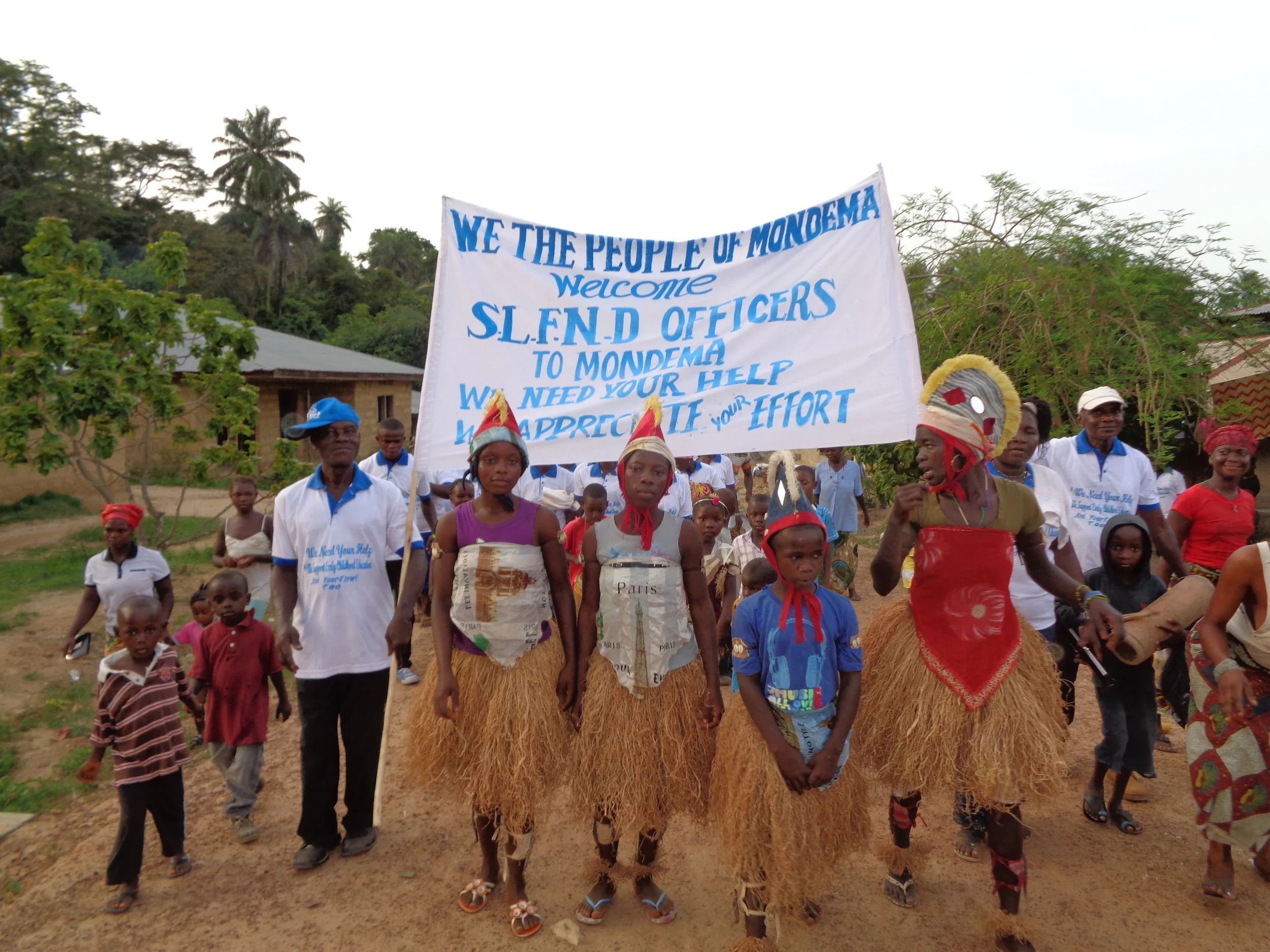SLFND’s Bakery Social Enterprise Co-op provides training and employment for Mondema villagers as well as breakfast for Dovalema school children and staff
SLFND’s Textiles Social Enterprise Co-op provides elders with an opportunity to build Dovalema school children’s fine-motor skills as they learn about colors, patterns, and plant fibers
SLFND’s Rice Milling Social Enterprise Co-op provides training and employment for Mondema villagers
Social enterprise Cooperatives
Strength in organization
Cooperative economics foster collective ownership and well-being rather than individual accumulation of private wealth. Collective ownership and well-being require a non-hierarchical and/ or rotating structure. SLFND is developing its Social Enterprise Co-ops in direct response to the extractive and exploitative environmental and labor practices that have impoverished Sierra Leone, Africa, and much of the world at large. They constitute an attempt for Sierra Leone to free itself—village by village—from the conditionalities imposed by international development aid, whose administration grew directly out of colonial offices. Its current administration through international non-governmental organizations weakens the Sierra Leonean state and provides livelihood to nationals from former colonial powers, beneficiaries of the Trans-Atlantic Slave Trade, and a neo-colonial elite at the expense of local Sierra Leoneans. Moreover, development aid displaces local knowledge and decision-making processes.
In contrast, SLFND provides paid employment exclusively to Sierra Leoneans residing in Sierra Leone; in fact, nearly all its paid positions are in Mondema itself. SLFND is able to do this because it has relied entirely on local mobilization, genuine partnerships, and individual donations. Because SLFND is focused on movement building more than organization building, it has no need for professionalized marketing and development staff—whose framing of the issues SLFND is addressing would lack direct experience and whose salaries it would have to raise money to pay. Instead, SLFND sees Sierra Leoneans as producers of knowledge and agents of change. It has made a commitment to build viable intra- and inter-village economies such that it can leave the individual villages it works with in 5 years. Villages that SLFND has worked with will go on to comprise a membership base charged with driving the organization’s quest to build deep, earth democracy—non-adversarial relationships among peoples and the earth—in Sierra Leone and worldwide, one village at a time.
At a smaller scale, SLFND’s Social Enterprise Cooperatives are organized similarly: SLFND intentionally recruits cooperative members in ways that challenge occupational segregation by gender and other dimensions. Cooperative members annually rotate in representing their individual cooperative at SLFND’s Council of Cooperatives, which is the organization’s primary decision-making body. Individual cooperatives meet weekly and the Council of Cooperatives meets monthly. Meetings involve reviewing and making decisions about inventory, production, and accounts, as well as engaging in action research and critical praxis around larger issues, including governance and negotiation with suppliers, buyers, and government bodies. Cooperative members each have the opportunity to practice and model non-adversarial leadership and decision-making that they can exercise everywhere.
SLFND’s Social Enterprise Cooperatives provide members with income as they provide villagers with products that are sourced and made locally—both less expensive and less degenerative to communities and the earth. They will also provide SLFND with income through membership dues, ensuring SLFND’s accountability to its constituents, as organizational decisions are made by villagers rather than foreign governments, international agencies, or philanthropic funders.




